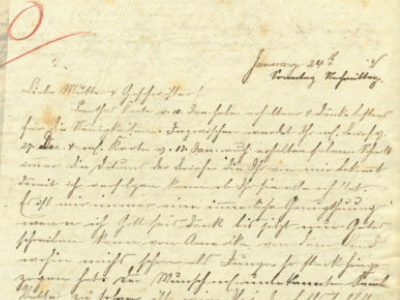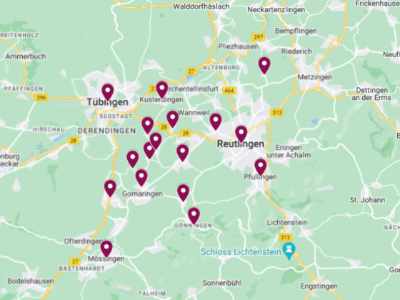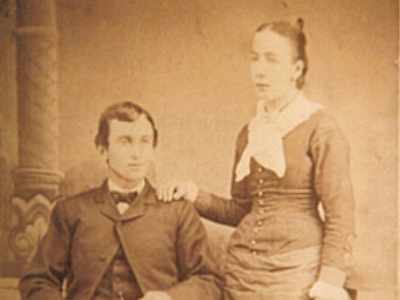Pfullingen is located near Reutlingen at the bottom of the Schwaebische Alb. With a population of about 18.000 inhabitants, it’s the third largest city in the county of Reutlingen. After the detection of historical pieces historians estimate, that in the area of Pfullingen there have been settlements already 3,000 before Jesus Christ.
Around 260 the area become the headquarter of an “Alemmannen” settlement, who was lead by “Phulo”. From him Pfullingen got its name as ‘people from Phulo’. In the early days of the middle ages
Pfullingen even had their own coins, weight and measurement. In a letter found in the nunnery even a own Pfullinger currency is mentioned.
In 937 Pfullingen received the fishing rights from Emperor Otto I. Wolfgang, the Bishop of Regensburg, who lived from 938 – 994 and Kuno the Archbishop of Trier, who was killed in 1066 have been important descendants of the Dukes of Pfullingen. During the city wars Pfullingen was destroyed in 1311 and burned down three times between 1377 to 1388.
During the 16th century Pfullingen was fully owned by the Dukes of Wuerttemberg. In 1596 Pfullingen received their own rights like pillory, prison etc. The former castle today serves as youth and cultural center. In 1699 Pfullingen received back the city rights and was until 1806 capital of the county.
The nunnery of the "Klarissinen"
In 1250 the nunnery of the “Klarissinen” was founded by Irminhild and Mechthild from Pfullingen to honor the Holy Cäcilie. The nunnery itself was finished around 1300. The church of the nunnery was built around 1470/1480. In 1534 the reformation process started in Wuerttemberg, but the nuns refused to become Lutheran Protestant. During 1540 – 1551 the nuns have been banned into the nunnery of the Franziskaner in Leonberg (near Stuttgart). In 1595 the last nun died; during the 30-year war the nunnery was revitalized by the nuns of the nunnery of Soeflingen. In 1845 the
nunnery was sold to private hands. It’s important to mention, that the nunnery owned also land in Immenhausen, where ancestors of my Bauer line had been responsible for the administration of the farm.
Economy
Until the 19th century the city was dominated by a farming environment due to the very good climate conditions, with a lot of fruit trees and also some vineyards. Beside the farming there existed various craftsmanship, who served the farming population.
At the end of the 18th century new occupations like stocking-weaver came up. They produced about 23.000 pair stockings a year. Between 1830 – 1840 the small companies were transformed in large factories. The water of the Echaz was used as propulsion for not less than 22 mills around 1900. In 1833 the entrepreneur Louis Laiblin bought an English paper machine and started the tradition of paper fabrication in Pfullingen.
Kemmler
The two Kemmler lines in Pfullingen are started by the two brothers, Johannes Kemmler (born Sep 22, 1710) married to Anna Maria Gumper and Conrad Kemmler (born May 8, 1726) married to Maria Barbara Bader.
The two brother’s are the son s of Conrad Kemmler from Ohmenhausen, who married in Pfullingen Anna Dorothea Beck on Oct 27, 1705 and settled with his wife in Pfullingen.
Last names of the emigrants
Barthold, Baumann, Bek, Dinkel, Fischer, Geisel, Hagelloch, Hagmaier, Heinlin, Heyd, Kemmler, Keppler, Kinkelin, Kostenbader, Leuze, Mollenkopf, Raiser, Rehm, Renz, Rilling, Schiefer, Schmid, Schmieder, Schwille, Störzer, Weiß
Administration
Stadt Pfulligen
Marktplatz 5
72793 Pfullingen
Phone: +49 7121 703-0
Email: info@pfullingen.de
Website: https://www.pfullingen.de
Lutheran parish in Pfullingen
Evangelische Gesamtkirchengemeinde Pfullingen
Laiblinsplatz 12
72793 Pfullingen
Phone: +49 7121 78070
Website: https://www.pfullingen-evangelisch.de/
The Lutheran parish records are available locally, but they may not accessible to the public. Copies of the books and registers have been microfilmed by the Wuerttembergische Evangelische Kirche. Copies of the mircofilms are also available from the Mormon church or Online via Ancestry.com, Myheritage.com or Archion.de.
Pictures
With the permission of the city administration I can show some of the pictures of the Pfullingen website.
Posts related to Pfullingen
During my research I found the emigrant Robert Eugen Kemmler, born July 6, 1867 in Rudersberg, Germany. His father was, Gottlieb Kemmler, was a teacher...
My research has started with my hometown Wankheim and the surrounding towns like Maehringen, Jettenburg, Immenhausen, Kusterdingen (the Haerten area), Stockach, Betzingen, Reicheneck, Pfullingen, Ohmenhausen,...
This is a picture of Philipp Frederik Hoss and his wife Elizabeth Klink. Philipp is a grandson of the first Hoss emigrant Johann Adam Hoss...


